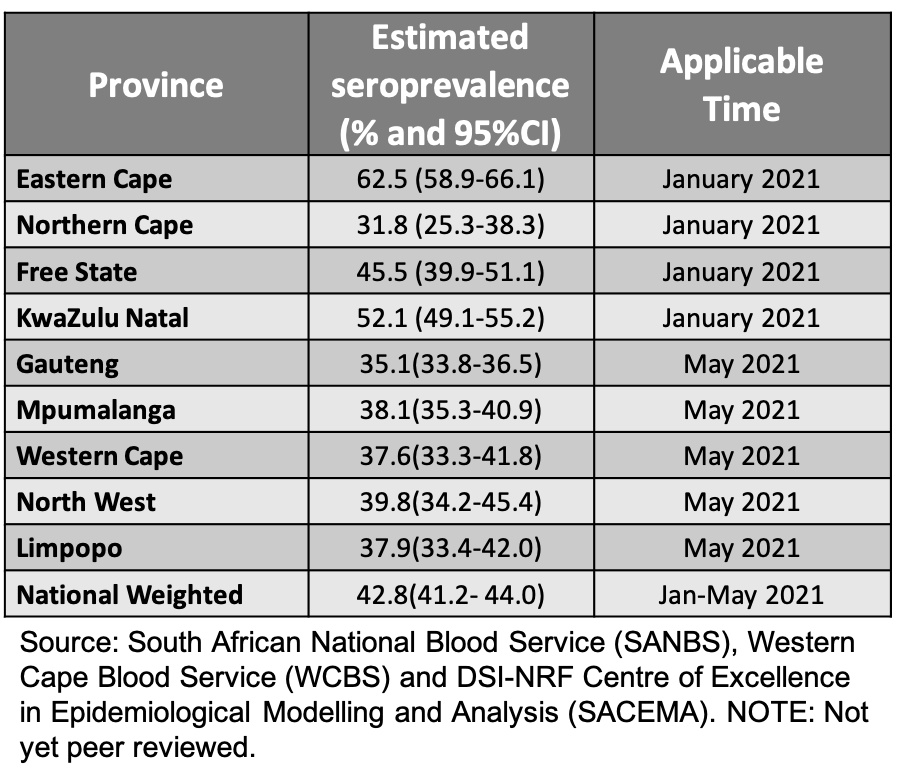
The latest results from @theSANBS, @The_WCBS, and #SACEMA on anti-SARS-CoV-2 seroprevalence among blood donors in South Africa are now available.
researchsquare.com/article/rs-168…
#notyetpeerreviewed
[1/8]
researchsquare.com/article/rs-168…
#notyetpeerreviewed
[1/8]
Congrats to @laurettemhlanga, @alex_welte, @Marionvermeulen, and the rest of the team!
TL;DR: as of mid-March 2022, prior to the BA.4/BA.5-driven resurgence, an estimated 98% of South Africans had antibodies from prior infection, vaccination, or both.
#notyetpeerreviewed
[2/8]
TL;DR: as of mid-March 2022, prior to the BA.4/BA.5-driven resurgence, an estimated 98% of South Africans had antibodies from prior infection, vaccination, or both.
#notyetpeerreviewed
[2/8]
This round of samples was tested using assays that detect different antibody types.
#notyetpeerreviewed
[3/8]
#notyetpeerreviewed
[3/8]
National estimates suggest that as of mid-March:
~87% of the population had evidence of prior infection
~11% had evidence of vaccination but no prior infection
Only ~2% of the population did not have any detectable antibodies
#notyetpeerreviewed
[4/8]
~87% of the population had evidence of prior infection
~11% had evidence of vaccination but no prior infection
Only ~2% of the population did not have any detectable antibodies
#notyetpeerreviewed
[4/8]
Earlier work by the same team (following the Beta and Delta waves, respectively) found substantial variation in seroprevalence (anti-N) by province and racial group.
researchsquare.com/article/rs-690…
researchsquare.com/article/rs-135…
#notyetpeerreviewed
[5/8]
researchsquare.com/article/rs-690…
researchsquare.com/article/rs-135…
#notyetpeerreviewed
[5/8]
Inter-provincial differences in the most recent data are small, while substantial differences remain across racial groups, likely driven by inequitable ability to reduce risk (e.g., through social distancing) and access to vaccination.
#notyetpeerreviewed
[6/8]
#notyetpeerreviewed
[6/8]
Blood donors are not perfectly representative of the population. In South Africa, they must be HIV negative and at least 18 years old.
#notyetpeerreviewed
[7/8]
#notyetpeerreviewed
[7/8]
Comparison of these results to other studies conducted in South Africa around the same time will be important for understanding the robustness of these estimates and potential biases.
#notyetpeerreviewed
[8/8]
#notyetpeerreviewed
[8/8]
• • •
Missing some Tweet in this thread? You can try to
force a refresh






